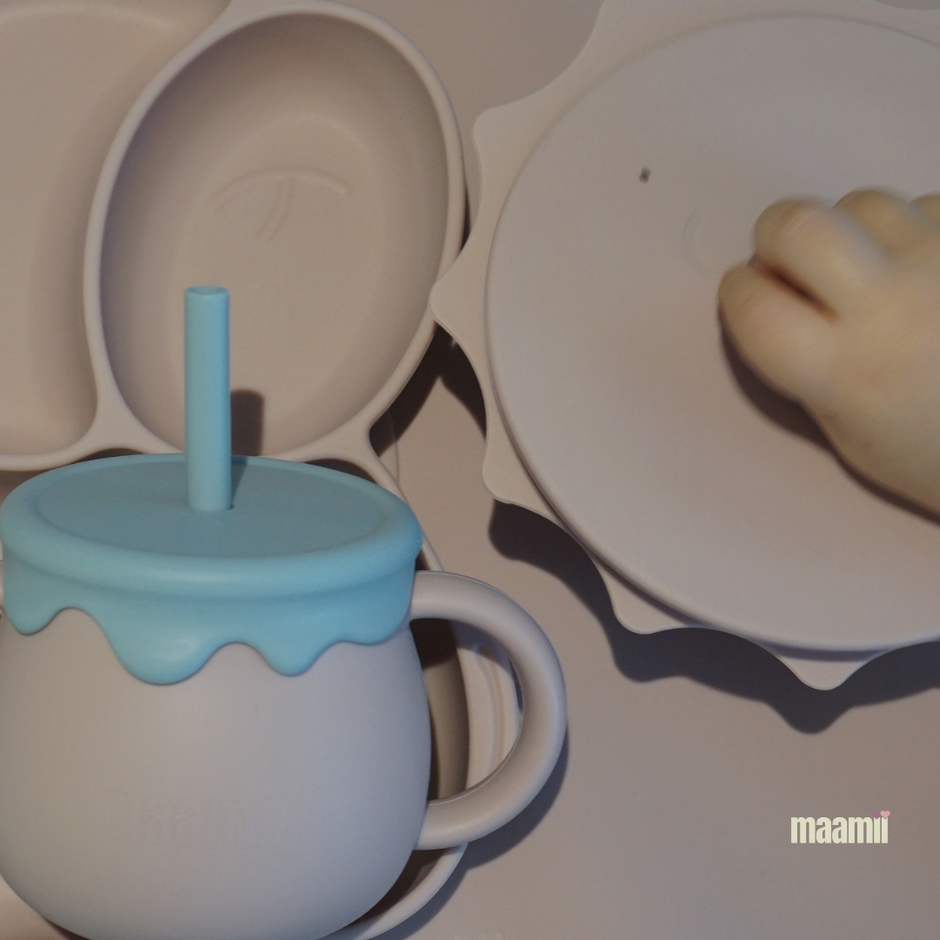Premature babies are true fighters, but their start in life is often a special journey. In Switzerland, there are many medical and therapeutic options available to help these tiny patients and their families. Topics such as neonatal care, special nutritional needs, osteopathy, and bonding play a central role.
Neonatal stay: Intensive care for premature babies
Premature babies, especially those born before the 32nd week of pregnancy, often require a stay in the neonatal unit (or "neo" for short). Here, their tiny bodies are closely monitored and supported.
- Equipment: Modern incubators provide a protected environment that regulates temperature, humidity, and oxygen supply.
- Medical support: Premature babies receive respiratory support (e.g., through CPAP devices), infusions for nutrition, and regular monitoring of vital signs.
- Care: Care provided by specially trained staff includes medical measures, but also touch and closeness, which are essential for the development of babies.
The average length of a neonatal stay depends on the baby's maturity and can range from a few days to several months.
Neonatal stay: "Premature Octopus" - Security in the incubator
A special aid for premature babies is the so-called " preemie octopus ." Originally from Denmark, it has become established in neonatal units worldwide. This small crocheted or knitted octopus is placed in the incubator for premature babies and has many advantages:
- Security: The octopus's tentacles remind the baby of the umbilical cord and create a feeling of security, similar to that in the womb.
- Calming: Grasping the tentacles has a calming effect and gives the babies support.
- Protection: By playing with the tentacles, premature babies are less likely to grab tubes or cables, which increases safety.
The "preemie octopus" is often made by volunteers as part of initiatives like " Octopus for a Preemie" and donated to hospitals. It is important that the materials and workmanship meet safety and hygiene standards.
Nutrition: A special focus
Premature babies often cannot be breastfed directly in the first few days because they are too weak to feed independently. Therefore, feeding is a key challenge:
- Breast milk is particularly valuable for premature babies because it is individually tailored to the baby's needs and provides valuable antibodies.
- If breastfeeding is not possible, expressed breast milk or donor breast milk (from milk banks) can be used.
- Because premature babies often have increased calorie and nutrient needs, breast milk is often fortified with additional calories and proteins.
- In the first few days or weeks, when digestion is not yet fully developed, "premature babies" receive nutrients directly via infusions.
Over time, babies learn to drink independently, either from the breast or through bottle feeding.
Bonding: Closeness despite technology
Bonding is crucial for premature babies and their parents. Despite the technical environment of the neonatal unit, it is important to establish a close bond :
- Kangaroo method: Parents hold their baby directly against their skin. This method promotes temperature regulation, stabilizes the heart rate, and strengthens bonding.
- Touch and voice: Even when a premature baby is still in an incubator, parents can build closeness through gentle touch and speaking.
- Breastfeeding attempts: Once the baby is stable enough, mothers can make their first attempts at breastfeeding, which promotes both bonding and milk production.
Osteopathy: Supporting development
Premature babies can develop tensions or blockages in their bodies due to their early birth. Osteopathy can help release these and promote development:
- Promoting movement development.
- Support for digestive problems such as colic.
- Improve sleep quality.
- Gentle release of tension in the head and neck area that may have arisen during childbirth.
The sessions are specifically tailored to the needs of premature babies and are conducted by experienced pediatric osteopaths.
The role of parents: Strong partners for the little fighters
Parents of premature babies often face tremendous emotional and physical stress. At the same time, they play a pivotal role in their baby's healing and developmental process. Supportive tips:
- Self-care: Parents should consciously take breaks to recharge their batteries.
- Involvement in care: Many neonatal units encourage active parental participation in care, such as changing diapers or feeding.
-
Support services: Organizations such as " Frühchen" Switzerland offer help and networking.
Conclusion: A special start with many possibilities
Premature babies begin their lives with unique challenges, but thanks to medical care in Switzerland, modern nutritional methods, bonding measures, and supportive therapies such as osteopathy, they now have excellent chances of a healthy life. Parents who navigate this challenging time together with their baby create a strong foundation for the future – with plenty of love, closeness, and support.
Numerous information and support services are available for parents of premature babies in Switzerland. Here is an overview:
A platform that offers reliable information and targeted support for parents of premature babies in every region. It promotes exchange between those affected and raises public awareness of the issue of premature birth.
2. SwissNeoNet
A network of specialists that cares for the well-being of Swiss premature babies – both during their initial hospitalization and during neurodevelopmental follow-up examinations in the first five to six years of life.
A research and practical project that facilitates and improves the transition from hospital to home for families with premature babies. An interprofessional team supports the families from birth until six months after hospital discharge.
4. amiamusica
An association that supports premature babies and their parents by promoting music and music therapy. It brings together affected families, professionals, and sponsors to support the children's development.
5. Neonatology departments in Swiss hospitals
Many Swiss hospitals have specialized departments for premature babies. For example, the University Hospital of Zurich offers comprehensive care for premature babies. A current overview for Switzerland is only available from 2011 ( Wikipedia ). It is therefore advisable to obtain information directly from the hospital in your region.
6. Parents' associations and self-help groups
Local groups offer opportunities for exchange and support for affected families. Information about these is often available through hospitals or regional health services.
7. Counseling centers for parents
Many communities offer counseling services that provide support on child development, nutrition, and care issues. These services can be valuable resources for parents of premature babies.
Source reference:
https://www.bfs.admin.ch/bfs/de/home/aktuell/agenda.gnpdetail.2024-0120.html
https://www.fruehchenschweiz.ch/wissenswertes/ueberblick-fruehgeburt
https://www.fruehchenschweiz.ch/engagement/we
https://www.fruehchenschweiz.ch/wissenswertes/ueberblick-fruehgeburt
https://fruehchenschweiz.ch
https://www.bfs.admin.ch/bfs/de/home/statistiken/gesundheit/gesundheitszustand/gesundheit-neugeborenen.html
https://www.swissstats.bfs.admin.ch/data/webviewer/appId/ch.admin.bfs.swissstat/article/issue231422852200-01/package
https://www.bfs.admin.ch/bfs/de/home/statistiken/bevoelkerung/geburten-todesfaelle/geburten.html
https://www.bfs.admin.ch/bfs/de/home/aktuell/agenda.gnpdetail.2024-0120.html
https://www.admin.ch/gov/de/start/dokumentation/medienmitteilungen.msg-id-32439.html
https://www.bfs.admin.ch/news/de/2023-0113
https://www.admin.ch/gov/de/start/dokumentation/medienmitteilungen.msg-id-13425.html
https://www.bfs.admin.ch/agenda/de/2023-0113
https://kinderklinik.insel.ch/de/unser-angebot/neonatologie/aktuelles-neonatologie/weltfruehgeborenentag-2024
https://baernerbaer.ch/gesellschaft/wenn-das-leben-zu-frueh-beginnt/
https://www.kispisg.ch/welt-fg-tag
https://www.usz.ch/krankheit/fruehgeburt/
https://www.efcni.org/activities/campaigns/starker-start-fuer-kleine-helden/
https://www.efcni.org/wp-content/uploads/2023/10/2023_10_04_Toolkit_StarkerStart.pdf
https://www.familienleben.ch/schwangerschaft/geburt/fruehgeburt-das-musst-du-wissen-7997







